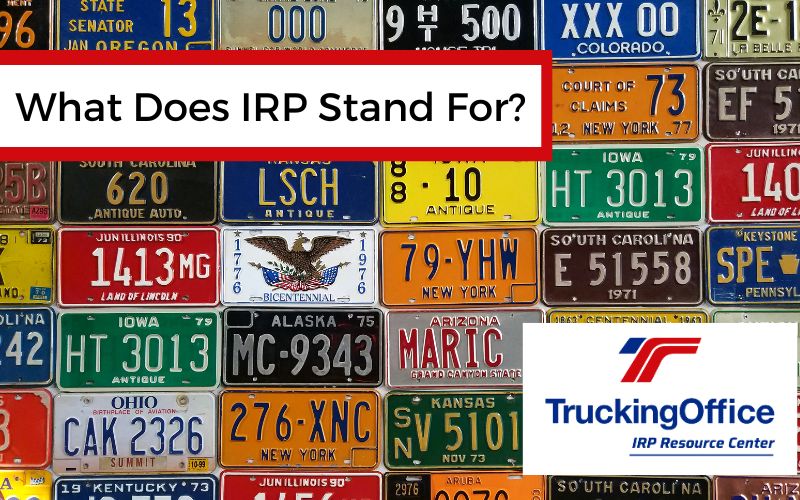“What is an IRP?” “What does IRP stand for?” “What’s IRP in trucking?”
We see questions like that all the time on the trucker forums. It’s not obvious from the name “International Registration Plan” what it’s all about.
It’s license plates.
Don’t get the link? Don’t worry – most of us don’t. In short, it’s another tax.
IRP – International Registration Plan
Long ago, a trucker might have a dozen or more license plates on the back of his rig. One for every state that the trucker drove through – and he paid for every single one of those plates.
The government figured that trucks with their heavy loads did more damage to the highways than the average car. So they justified charging more for truck license plates. When trucks started hauling goods across state lines, and even internationally, each state wanted the taxes from the trucking companies, so long-distance drivers had to put up multiple license plates.
And then, in the 1970s, the International Registration Plan was enacted. Essentially, truckers bought an “apportioned” license plate that covered all jurisdictions in the US and Canada. A trucker pays for the plate and then twice a year, submits a report of what states or jurisdictions the truck drove through. The mileage is calculated and a bill is created to make sure that every state gets a fair share of the collected taxes. The IRP simplified the license plate tax for all truckers and removed that wall of license plates for good.
License Plate Bingo became a thing of the past.
Home State
Every truck is registered in its home state. Twice a year, truckers file IRP with that state and pay the taxes due. IRP has a website online that explains the process and the charges per state, updating them as necessary. Payments are made on the website. Even if the truck has been parked for the entire half-year, a filing is made – just like IFTA.
The International Registration Plan does make life easier for truckers. It makes long-distance trucking a lot easier. Trucking companies can take loads across the country or even across the Canadian border without worrying about licensing issues.
How many miles per state?
If you’re using the TruckingOffice ELD, you can be confident that your miles per state records are accurate. Reporting accurate numbers in IRP means you’re paying the right amount of tax. You don’t have to worry about overpaying or underpaying the tax. Your IRP report in TruckingOffice is available in seconds.
Are you using TruckingOffice TMS and ELD in your trucking business? It’s time to have confidence that you’re running your trucking business for growth and success!
What do our customers say?
great software. easy to navigate. helps me to keep track of my numbers
Trucking Office has been amazing! It’s so simple to use. Thanks for sharing your creation ![]()







Recent Comments